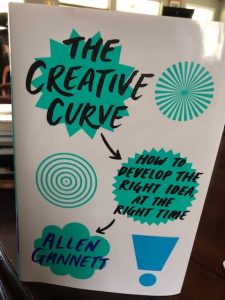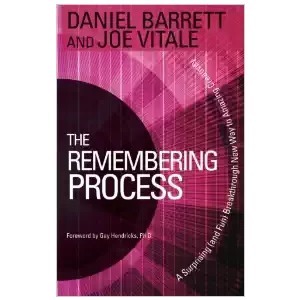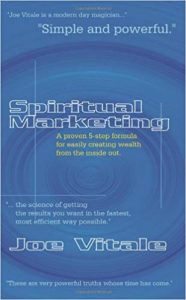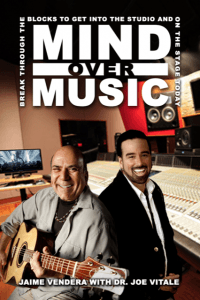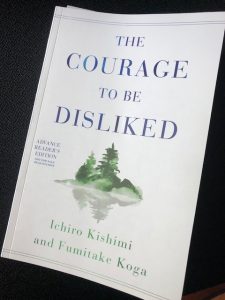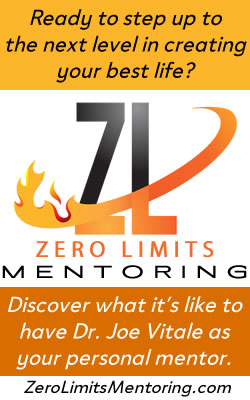Books
The Most Contented Man
My father passed away last month. He was 93. One of my proudest moments was turning him into an author when he was age 90. Here is that moment:
Wealth Attraction Secrets
I’m excited to say Andres Pira and I have completed the book “Homeless to Billionaire.” It reveals his 18 wealth attraction secrets. You can pre-order it at his site right now: https://andrespira.com/
The Shocking Truth About Creativity
I love creativity!
The sudden burst of a creative new idea electrifies me.
It’s an orgasmic rush to feel the birth of a new book, or song, or product, or online course.
I love it!
But there are a lot of misconceptions about creativity and being creative.
For one, most people sit around and wait for inspiration to wallop them over the head with an idea.
And they expect the idea to be fully developed and ready for release to the public.
But is that how it actually happens?
When I had my private songwriting lesson in the home of rock icon Melissa Etheridge, she advised, “Never write without being inspired.”
But how do you get inspired?
She went on to explain how she gets inspired.
She walks in nature, reads biographies, reviews songs and poems, and more.
In other words, she invites inspiration.
Jack London was more macho about it.
He said, “You can’t wait for inspiration. You have to go after it with a club.”
Considering he wrote over 50 books, and some (White Fang, The Call of the Wild, Martin Eden) are considered classics of literature, he knew what to do to nail creativity.
I’m a fan of inviting creativity, too.
I read, listen to music, allow my mind to reflect, sit in the hot tub and look at the stars, meditate and more
But here’s the thing no one seems to get.
Receiving creativity is one thing; developing what you receive is another.
For example, I was reading the new book The Creative Curve by Allan Gannett and began to get the idea of writing this post.
My mind was “ignited with an idea” and I let it float through my mind.
But then I went here and started explaining my idea.
I started writing.
And rewriting.
In other words, the sudden inspiration for an idea is a birth; but you have to grow and develop the idea into something that you can share.
Melissa Etheridge also told me that after I got an idea for a song, I “get” to develop it with music, melody and more.
She stressed the word “get.”
Some people complain that they have an idea for a book or a business, but now have to do the work to bring it into being.
You don’t “have” to do it, you “get” to do it.
It’s a shift in perspective.
With this very blog post, I’ll probably rewrite it fifteen times, or more.
Why?
Because receiving an idea and developing an idea are two different things.
For example, according to Gannett’s book, Paul McCarthy worked on his famous song “Yesterday” for almost two years. (!)
He didn’t just receive inspiration and release a song.
He wrote. Rewrote. Wondered.
Pondered. Worried. Stressed.
And worked some more.
The result is considered a masterpiece.
But it didn’t arrive in his mind as complete and finished.
All he received was the seed.
According to Gannett, “McCartney became obsessed. While he worked on it, the people around McCartney became sick of hearing about his ever-changing song in progress.”
After twenty months of this process, he created what we all know and love as the famous song, “Yesterday.”
Mozart didn’t receive finished music, either.
That’s another fallacy.
He got flashes of ideas and then worked at the keyboard to grind out what worked and didn’t.
I remember reading that the late Leonard Cohen often worked on a single song for ten years.
The shocking truth about creativity is that getting an idea is simple birth; you still have to raise it, much like making a baby is a thrilling explosion of delight, but now you have to change the diapers, feed it, raise it, and send it to school.
If you really want to be creative, you have to invite inspiration, and then go to work.
Take the seed and grow it.
When Daniel Barrett and I wrote the book, The Remembering Process, we wanted to share a new way to invite creative expression and creativity.
But after you receive a vision, or an inkling of what to do, you still have to develop it.
The creative idea isn’t the end.
The creative idea is the beginning.
And that’s where you “get” to be the parent of creativity.
For example, when I stated an intention to create the album, Sun Will Rise, I had to use everything to receive the ideas for each song.
But then I also had to write and rewrite those songs.
And then I had to get my Band of Legends together and record those songs.
And then we had to tweak and improve those songs in the studio.
And then we mixed them, and mastered them.
I didn’t just “get an idea” and quit.
This is the shocking truth about creativity.
Let me give you a maybe more startling example:
Back in 1997 or so I wrote a little booklet called Spiritual Marketing. I wrote it for my sister. I got the idea that maybe I could help her by explaining a process I had learned that took me from homeless to wealth. The little booklet explained a five step formula for attracting wealth. I never promoted it, and I kept it secret; only handing it out among friends and people I met and trusted. One of those friends was Bob Proctor, who convinced me this little booklet was a gem.
I could have stopped there.
A new print-on-demand publisher approached me around 2002 and asked if they could print something of mine. I gave them Spiritual Marketing. But before I did, I rewrote it, expanded it, added more content to it, and developed it into a more mainstream full length book. That book became an Amazon bestseller and was mentioned in a New York Times article.
And I could have stopped there.
Then, around 2005, a major publisher approached me about publishing Spiritual Marketing. But they didn’t like the title. So I changed the title, rewrote the book, added even more content to it, and released it as The Attractor Factor. It was that very book that got me invited to be in what became the hit movie The Secret.
But this evolution of an idea didn’t stop there.
The publisher loved the book but wanted to print a newer, expanded, more workbook oriented edition of it. So I again added to the book, enriched it, added quizzes and worksheets, and saw it published in 2008. That book is still a bestseller today.
Do you see how this process works?
I didn’t receive an idea and stop.
I received it, developed it, and kept developing it.
What I keep preaching is that life is a co-creation.
It’s a dance of energy.
You receive an idea or inspiration.
But it will just sit there unless you take action to breathe it into being.
I’m told I’ve written over 75 books.
I’m told I’ve recorded over 15 albums.
They all began as ideas from being creative, from allowing creativity; but none of them would be available had I take not taken action to create and manifest them.
So, how do you be more creative?
How do you practice creativity?
By inviting inspiration.
And by acting on that inspiration.
Now go forth and blossom.
You have work you “get” to do.
Go do it.
Ao Akua
joe
PS — Enjoy!
Mind Over Music
Jaime Vendera is a famous vocal coach who challenged me to write a book on using Law of Attraction and mind power etc for musicians. I threw the challenge back at him. The result is our new book, already a bestseller, titled Mind Over Music. Here’s my introduction, which explains the back story:
Why Anything Is Possible
An Introduction by Dr. Joe Vitale
One day I checked Facebook and there was a curious message from Jaime Vendera. I knew Jaime from his books on singing, which helped me with my own vocal technique. I had gone from zero to musician in the span of a few years, and Jaime was one of my never-met coaches along the way. I had bought and read his books. I knew he was a badass vocal coach. His ideas had helped me, and still do.
So I looked at his message. He wrote:
“Listen up, Vitale, the Universe smacked me again to put this in your brain…and I am pretty sure I told you this a few years back:) You REALLY need to write an “LOA/Ramp up your music making mojo” type book. It’s not a book about the art songwriting, but more a book lining out the steps to get a musician off their butt and finishing their songs and recording/releasing them… You are THE perfect person to write this considering what you’ve accomplished!!! If you don’t write this, that voice in my head will never leave me alone. It will pester me to pester you until you hear it too;) There, I told you, just as I was instructed to do. So now please write the book so it will make the voices stop, hahahaha;)”
I admired his playful audacity. I’ve written over 70 books and Jaime knew it. He also knew my expertise in self-help methods, as well as the Law of Attraction, applied to would-be musicians, would be a hit.
He also knew that my appearance in the hit movie The Secret, and my books on the Law of Attraction (LOA), made me qualified to teach musicians.
But I also felt that this idea was his, not mine. I suspected he was just tossing a monkey at me and hoping I’d adopt it. I already had enough monkeys.
So I wrote back to him saying:
“hmmmm Maybe it’s in your head and not mine so you write it and i add to it to be coauthor…”
Seemed like a fair counter offer to me. Jaime could blow me off but at least I didn’t dismiss him. I was acknowledging his idea but turning it back in his direction. I was sending the monkey home. To my surprise, he accepted my challenge.
He wrote back saying:
“Hahaha well that will work then. I just had this image of you explaining how you knocked out so many songs so quick. I’m knocking out 4 new products right now but I’ll start writing soon.”
He did, too. Not only did he start writing, but he caught on fire and wrote the entire book by himself – in only four days.(!)
A week later he wrote to me saying:
“Just letting you know I never back down from a challenge;) I am writing three new books, filming two new videos, two new audio programs, and writing/recording as we speak, and it is all part of the focus of this book. feel it should be called MIND OVER MUSIC and show the musician that Writer’s block is only a state of mind, as well as teach them how to get it out of their heads and recorded in record time. So, I had a quick question for you. Do you have a musical bio I can copy/paste. i want to mention the day you decided to become a musician and record and ALL the albums you have released since then. I am blown away by your energy and what you’ve done. It is soooo refreshing.”
He was referring to my becoming a musician with 15 albums recorded in about 5 years. That seemed impossible to most people. But I teach “Anything Is Possible” (and wrote a book titled that very statement.) I sent him the material he wanted and he inserted it into his book. Then I read the book.
Now it was my turn to be blown away.
He wrote the book with a passion I rarely see in other authors. And he gave steps and secrets and insights along the way. He included me and my story of becoming a musician, beginning with zero experience, and going on to record numerous albums, study with rock icon Melissa Etheridge, and even overcome terror to sing on stage with my Band of Legends.
In short, he had created the very book he wanted me to write. And he did it without me.
But being the kind and generous soul that he is, he wanted my name as coauthor because he said I inspired the entire project. He wanted me to have credit. That’s the kind of loving person he is. So I accepted.
The good news for you, the reader, is you get to benefit from the combined experience of two authors, teachers, coaches, and musicians: us.
I’m living proof that you can dissolve blocks and get in the studio and on stage, no matter who you are, where you are, what your level of experience, your age, or much else.
And Jaime is living proof that when you adopt his methods, you will shine in the studio and on stage, too.
All in all, you are about to read an illuminating guide to getting past the excuses and blocks and into the studio and onto the stage. Bright lights and applause await, as well as the deep satisfaction of sharing your music with the world.
And now, curtain up…
Ao Akua
Joe
PS – Our bestselling book, Mind Over Music, is more than Law of Attraction and self help principles; it is about facing fears and overcoming doubts so you can get in the studio or onto the stage. It is on Amazon for Kindle and in print at https://smile.amazon.com/Mind-Over-Music-Through-Blocks/dp/1936307456/
The Courage To Be Disliked
Last month I was lucky enough to be given an advanced prepublication review copy of The Courage to Be Disliked by Ichiro Kishimi and Fumitake Koga (Atria Books, May 2018 release).
I say “lucky” because the book changed my life.
I had never heard of it before. But the book is a runaway bestseller in Japan. It sold 3.5 million copies in Asia.
- A million copies sold of any book is miraculous.
- Over three million copies sold in Japan alone is staggering.
The book is a dialogue between a student and a philosopher.
The messages are potent.
Most of the material stems from the work of psychologist Alfred Adler. As much as I’ve read in psychology, I wasn’t familiar with Adler.
I am now.
Adler (1870-1937) was an Austrain physician, psychotherapist, and the founder of Adlerian psychology, sometimes called Individual Psychology.
Around 1907 Adler and Freud, along with Rudolf Reitler and Wilhelm Stekel, began meeting weekly in a type of early mastermind. Their “Wednesday Night Meetings” eventually grew into the birth of the psychoanalytic movement.
Freud and Adler did not agree and went separate ways. I’m currently collecting and reading Adler’s works, such as Understanding Human Nature (1927) and The Science of Living (1929).
While I am digging into the original words of Adler, I find The Courage To Be Disliked an easier approach to understanding him.
Here’s why…
The Courage to Be Disliked is a refreshing stir for self courage.
Rather than giving away your power to circumstances, you use your power for choice.
The book explains etiology, which is the idea of cause and effect, versus teleology, which is the idea of meaning and choice.
“We are not determined by our experiences, but are self-determined by the meaning we give to them…” – Alfred Adler
In other words, many schools of thought (including Freud’s) say you are the product of your past and/or your environment.
That is cause and effect thinking, or etiology.
But Adler’s approach is to say you can create your life from new meaning and choice, which is teleology.
Obviously, the latter is more empowering and freeing.
The latter doesn’t need anything outside of you to change for you to change.
You can change with a decision.
The Adler way is not one of victimhood but of empowerment.
For example, rather than saying you are the way you are due to the circumstances of your childhood, or current circumstances, you instead choose to create how you want to be from goals selected out of this moment.
- The past has no hold over you.
- Environment has no hold over you.
- Others have no hold over you.
At first glance, the concepts in The Courage to Be Disliked could seem daunting and unrealistic.
But as I kept reading the book, and following the concepts being explained, I realized that this book is a manual for awakening.
There are too many concepts to repeat here, but one crucial one is this:
“All problems are interpersonal relationship problems.”
Let that sink in.
“All problems are interpersonal relationship problems.”
The idea (simplified) is that you may sometimes try to please others, which is giving away your power to others.
You can’t easily be happy if you are waiting on another’s approval.
When you choose yourself, you are free.
You may be disliked; but you are free.
But here’s an even deeper insight…
An advanced insight is this: you have an interpersonal problem with someone in order to justify something you don’t want to do.
In short, you created the need for an excuse and then created the interpersonal problem to rationalize the excuse.
The problem or person didn’t come first; your need for a way out did.
This is similar to my own observation:
“The meaning you give an event is the belief that attracted it.”
You don’t realize it, but it’s actually you and your meaning/beliefs creating your life.
This completely transforms the idea of problems with other people.
You created them!
The Courage To Be Disliked explains all of this, and more, in an easy to read style.
It’s simply a conversation.
But “the student” is asking what you would probably ask.
And “the philosopher” is responding as might Socrates, or Adler himself.
Along the way you get “aha” moments of insights.
For example, learning to separate tasks is important.
That means learning to understand what is under your task to do, and what is for others to do.
- Wanting someone to like you isn’t your task. It’s theirs.
- Wanting a child to clean his or her room isn’t your task. It’s the child’s.
- Wanting to be recognized for success isn’t your task. It’s the public’s.
Knowing this “task separation” gives you freedom.
“We cannot think, feel, will, or act without the perception of some goal.” – Alfred Adler
I’ve often referred to people trying to give me their task as them trying to give me their monkey.
They don’t want to care for “the monkey” so they try to pass it off to me.
But I have enough monkeys.
Knowing that I don’t want another monkey, and that their task isn’t mine to do, makes it easier for me to have a boundary and maintain it for my own self-care.
As a result, I can be free.
Here’s a recent example:
Jaime Vendera is a vocal coach. A terrific one. He’s written Raise Your Voice and The Ultimate Breathing Workout. He’s helped lots of singers, including me.
He wrote to me one day saying he had an idea for a book I could write. He suggested it could be about mindset for musicians.
While I liked the idea, I sensed he was passing a monkey to me.
So I wrote back, saying it was his idea, or his task, so he should write it.
To my surprise, and his credit, he took the challenge.
He completely wrote the book, showed it to me, and I added some content, and a subtitle to it.
We are now coauthors of the book, Mind Over Music: Break Through the Blocks to Get Into the Studio and Onto the Stage. (It’ll be out next month.)
Instead of my taking on his task, I simply kept my boundary and supported him.
The result was a win-win for both of us.
Do you see how this works?
The Courage to Be Disliked contains far more wisdom, theory, and technique than I could possibly relay in this article.
But I don’t want you to settle for this post.
I want you to read the book.
Whether you do or not, of course, is your task, not mine.
Ao Akua,
PS – The Courage To Be Disliked will be in stores May 8, 2018. You can order it in print, for your Kindle reader, or on audio right now at Amazon: https://smile.amazon.com/Courage-Be-Disliked-Phenomenon-Happiness/dp/1501197274/


